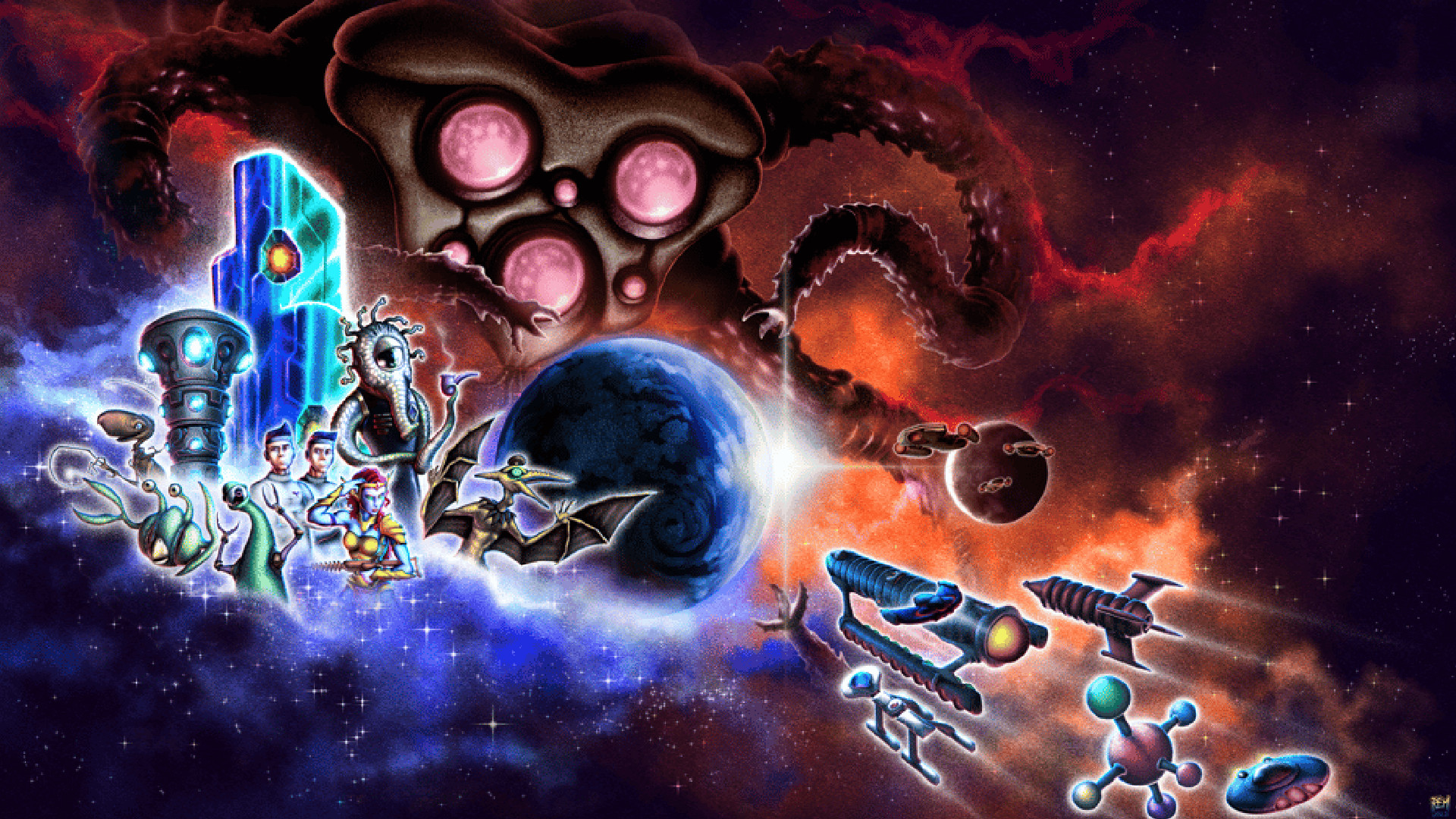
The devs who founded Toys for Bob are going back to finally build a proper sequel to their beloved 1992 open-world space game, and while they no longer have the rights to the original game's name, the Kickstarter for this new title has smashed its $100,000 goal in less than three hours.
Free Stars: Children of Infinity is a sequel to Star Control 2 in all but name, and like its predecessor it's an open-world space game where you captain a ship, explore the galaxy, and have dialog tree conversations with all sorts of alien characters. You control your ship from a top-down perspective, flying around and shooting enemies in action sequences, but the real draw is the open-ended freedom you have to change your relationships with the characters you meet along the way and forge your own way through the galaxy.
If that sort of setup sounds familiar, it probably should. Star Control 2's "inspiration is all over the Mass Effect series," as former BioWare dev Mike Laidlaw once told Hardcore Gaming 101. "Rich stories, featuring a human who finds themselves thrust into a galactic conflict against dire, overwhelming foes bent on universal extinction is a great common theme. And of course we can’t forget the Mako, which was a direct nod to the lander gameplay of Star Control II."
Star Control 2 is a beloved classic, and with Free Stars: Children of Infinity promising a similar adventure from the original developers, it's little wonder that the game's Kickstarter managed to smash its $100,000 goal less than three hours after the project launched. "This is the ultimate, best feeling in the world," as the devs say in an update post.
If you're not familiar with Star Control 2, you might be wondering why this game features an entirely different title, and why I'm completely ignoring the multiple other sequels that have appeared in the years since the original game's release. Well, buckle up, because this is a long, strange history lesson.
The original Star Control was the first game from Toys for Bob, initially an independent studio founded by Paul Reiche III and Fred Ford. That first game is well-regarded, but it wasn't until the sequel and its added open-world sandbox elements that the studio produced an instant classic. Reiche and Ford did not want to do another sequel, so publisher Accolade contracted another studio - Legend Entertainment - to create Star Control 3, and while that game reviewed well, it never held up to its predecessor in the eyes of hardcore fans.
And that's where things get weird. The rights to the game eventually reverted to Reiche and Ford, but the Star Control trademark stuck with Accolade. In 2002, Reiche and Ford made all the original content of Star Control 2 open-source, leading to a free remaster called The Ur-Quan Masters. Now under the title Free Stars: The Ur-Quan Masters, this game is available on Steam today, and it's this version that we're now getting a Kickstarted sequel too.
In 2017, Reiche and Ford announced their intention to make a sequel to The Ur-Quan Masters, but that didn't sit well with Stadock, which had acquired the rights to the Star Control name and was then promoting its own sequel called Star Control: Origins. You can read the full details of the resulting legal battle on Wikipedia, but in short, the two parties settled, leaving Stardock with the rights to the Star Control name, while Reiche and Ford kept their right to produce a sequel under a new title - provided they waited a few years before promoting it any further. (Also, bizarrely, the settlement apparently included an agreement to trade honey for mead, as Rock Paper Shotgun reported at the time.)
Reiche and Ford left Toys for Bob in 2020, eventually joining a few other veterans of the studio to found Pistol Shrimp, the outfit that's now bringing us Free Stars: Children of Infinity - or, if you're nasty, the real Star Control 3 - all these years later. As I write this, the Kickstarter's already over $141k, so clearly there are plenty of fans who've been waiting a long time for this moment.
Reports suggest that Toys for Bob is now making a game with former owner Xbox shortly after going indie.







